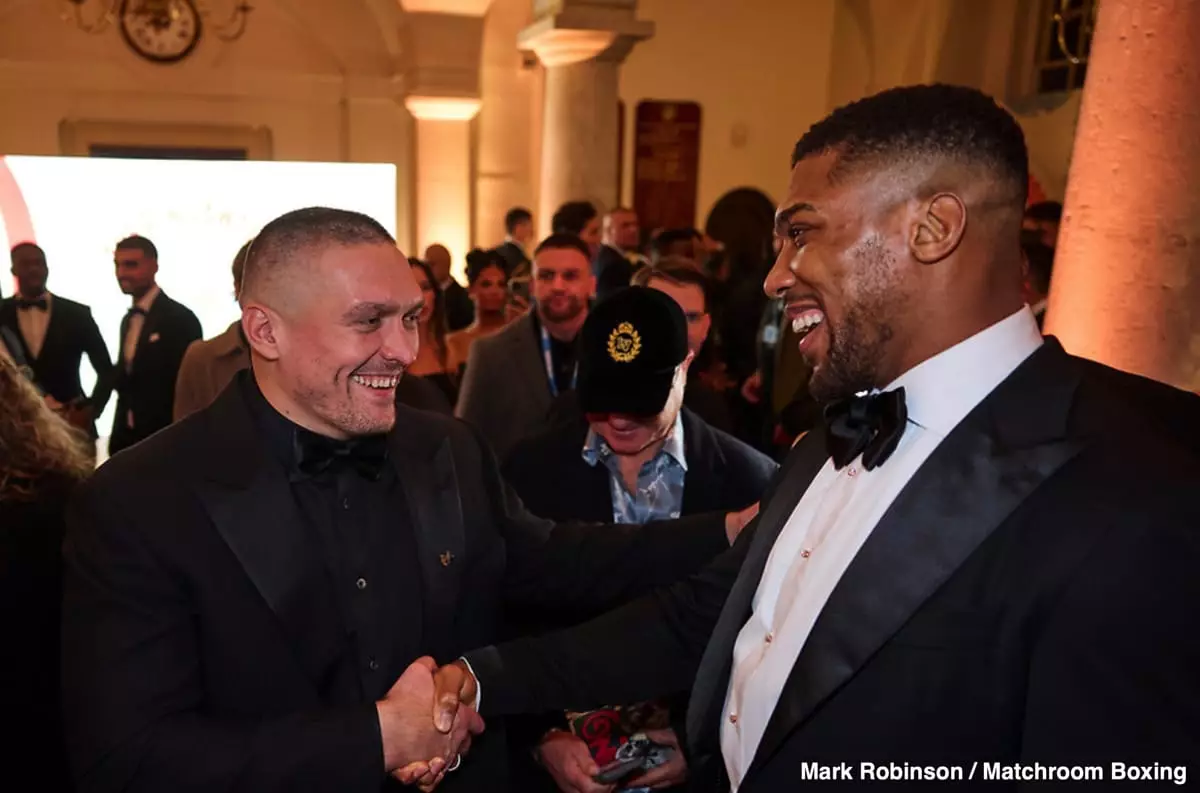The long-anticipated boxing match between Anthony Joshua and Tyson Fury has evolved into a saga that embodies the frustrations and aspirations of boxing fans worldwide. For over a decade, supporters have eagerly awaited this heavyweight clash, but the ongoing delays and recent developments raise questions about the legacies of both fighters and the state of heavyweight boxing as a whole. The implications of their decisions—both to fight or to refrain from doing so—could alter how they are remembered in the annals of boxing.
The absence of a fight between Joshua and Fury would not merely disappoint fans; it could irrevocably alter the trajectory of both fighters’ careers. Each has enjoyed significant victories and conceived big hopes throughout their journeys, yet their failure to face one another could obscure their achievements. This perceived negligence may overshadow their talent and create a narrative steeped in regret instead of triumph. Often, sports legends are immortalized not just by their victories, but by the epic battles they engage in. If these fighters choose to bypass this ultimate showdown, both could find themselves defined by what could have been rather than what they accomplished.
The Palpable Effect of Recent Defeats
Fury’s sudden retirement announcement following his loss to Oleksandr Usyk has sent shockwaves through the boxing community. The nature of his exit reflects the heavy mental toll such defeats can exact on a fighter. Both physically and psychologically, the aftermath of losing a match of that caliber is profound. Questions arise—has Fury’s confidence eroded, and has he been compelled to reevaluate his place in the sport? Eddie Hearn, Joshua’s promoter, weighs in, noting that the enduring effects of defeat can lead a fighter to question their drive and purpose in the ring. “You don’t understand what a defeat does to you mentally at that level,” Hearn stated, emphasizing the harsh realities of high-stakes competition.
Among these reflections lies a tension seen in many athletes: the struggle between passion for the sport and the weight of defeat. It is this intersection that both Joshua and Fury find themselves navigating—how to honor their legacies while contending with recent setbacks. The pressure of public expectations can create a daunting environment that few understand unless they’ve stood in the ring themselves.
Hearn’s skepticism regarding Fury’s retirement brings forth another intriguing angle—could this be more strategy than sincerity? The boxing promoter suggests that Fury might be attempting to play the long game, biding time until the opportunity for a lucrative bout against Joshua arises once more. The dynamic of boxing culture amplifies this theory; fighters often use retirement as leverage to enhance their negotiation positions. With a fight against Joshua being potentially the most lucrative assignment in Fury’s career, the prospect of retiring only to return under favorable conditions could be his calculated play.
It presents an interesting paradox: the genuine struggle of an athlete coping with a downfall intertwined with the manipulation seen in the competitive landscape of boxing. Indeed, Fury’s history with retirement adds to the intrigue—he has stepped back from the sport before, raising questions about how genuine his current intentions are.
Another factor worth exploring is Fury’s financial stability. With an estimated fortune nearing $200 million, one might question whether money itself remains a primary motivator for him. Yet, the lure of a significant purse accompanying a Joshua bout acts as an undeniable allure. Interestingly, the thought process extends beyond mere financial gain; it also encompasses legacy. While financial independence ensures comfort, the craving for redemption and recognition remains a powerful catalyst for performance. Fighters like Joshua and Fury, who have achieved massive fame, tend to be acutely aware that their legacies will be largely shaped by pivotal victories—or missing opportunities.
As this drama unfolds in the heavyweight division, the boxing world remains on edge, anticipating either the resurrection of a long-awaited showdown or another chapter of uncertainty. Until these two titans step into the ring together, they, and their fans, will have to grapple with the shadow of undelivered expectation, forever asking, “What if?” As such, the narrative here extends beyond boxing; it speaks to ambition, legacy, and perhaps the ultimate challenge: fighting not just opponents, but oneself.

